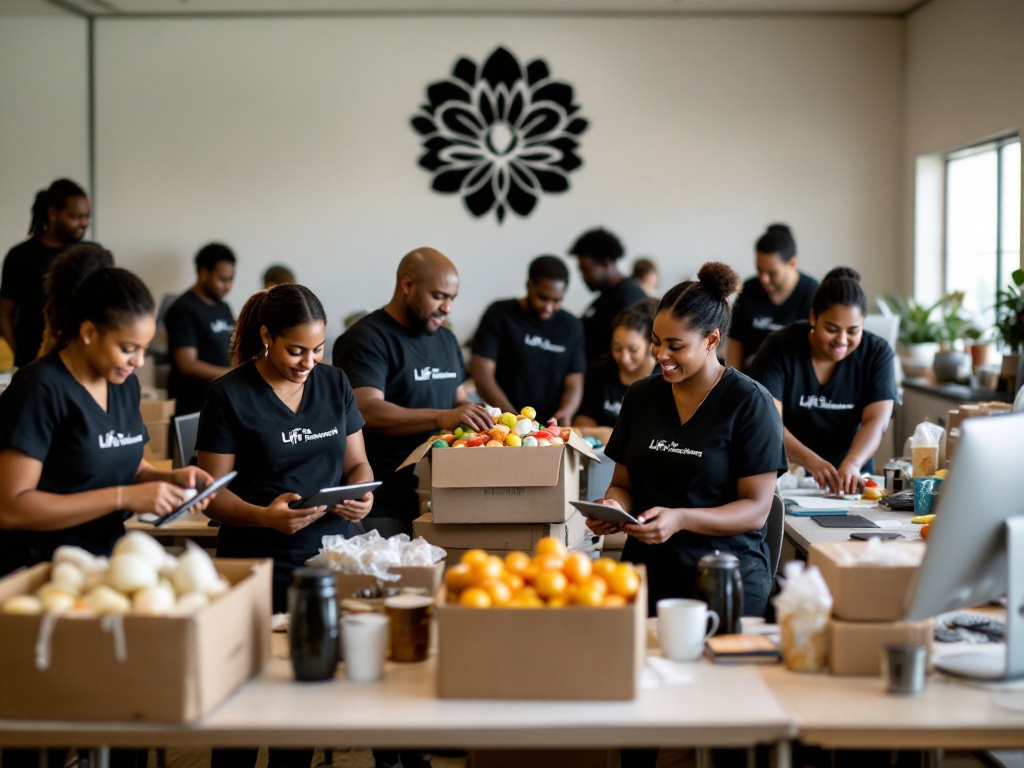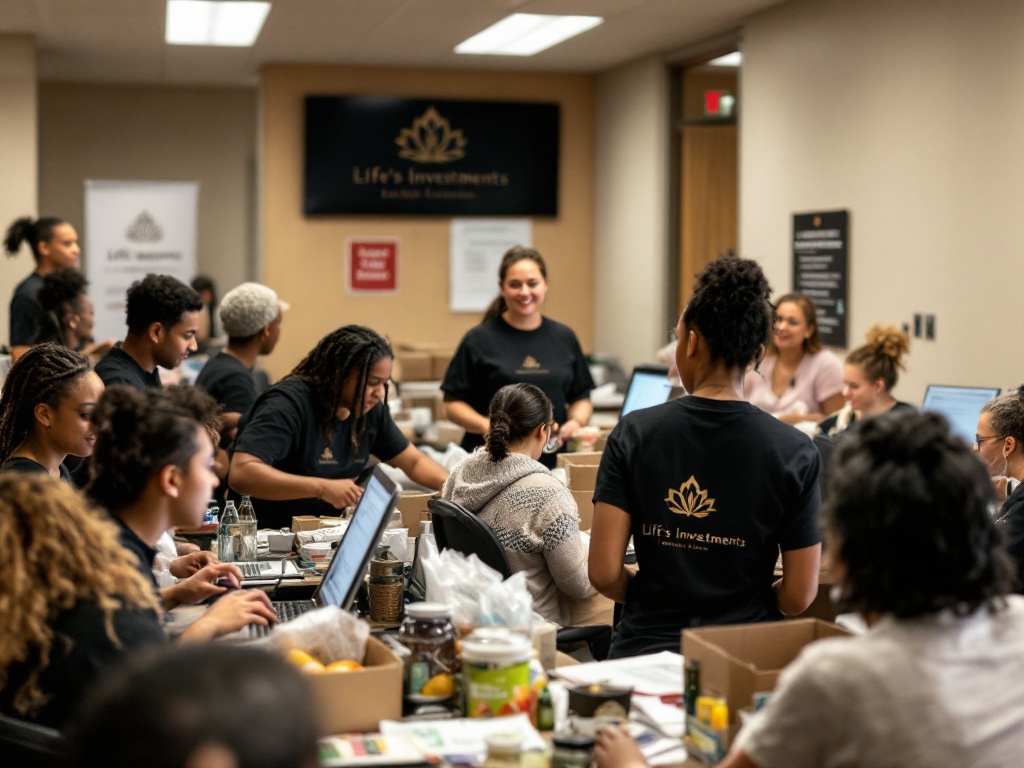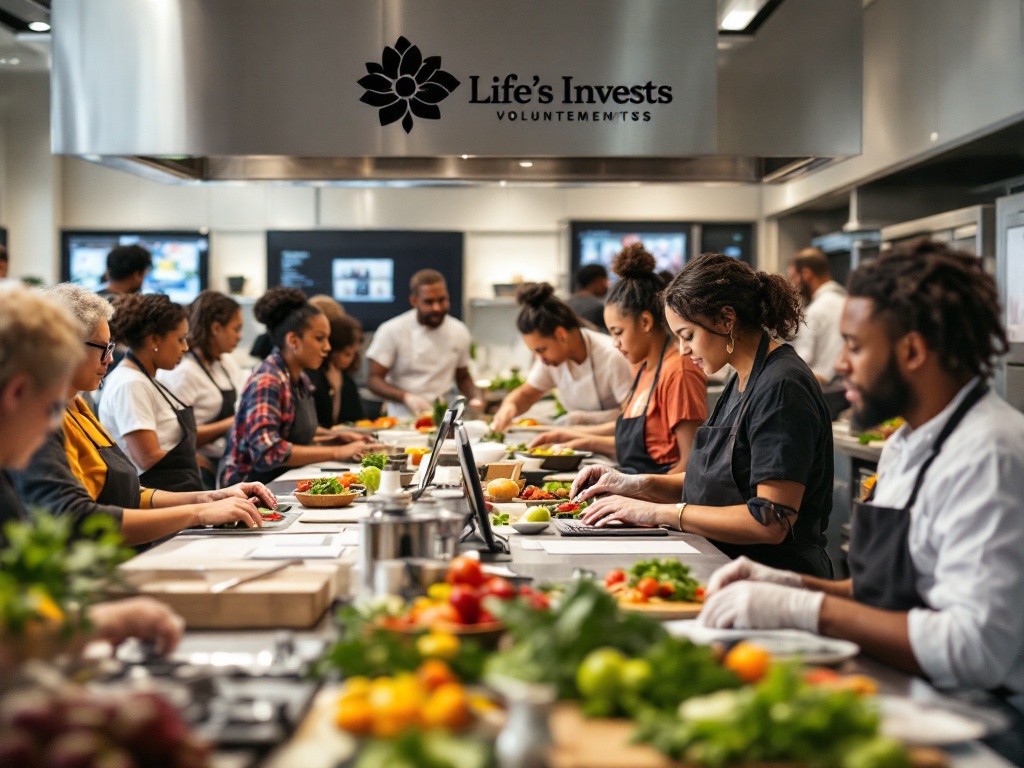Volunteers and Involvement
Reignite Our Mission: Be Part of the Revival
At Life’s Investments, we know that volunteers are the backbone of transformative change. While our programs have been dormant due to funding constraints, we are determined to rebuild stronger than ever—and we need your help to do it.
Your time and dedication can help us revive essential programs, combat food waste, and support families in need. By joining our team of volunteers, you’ll play a pivotal role in creating a brighter, more sustainable future for our community.
Sign Up to Volunteer Today
Why Your Involvement Matters
1. Help Revive Dormant Programs
- Assist in restarting key initiatives like food recovery, community outreach, and disaster relief efforts.
- Rebuild the foundation of impactful programs that have served countless individuals in the past.
2. Be Part of a Fresh Start
Join us as we relaunch programs designed to reduce food waste, address food insecurity, and support underserved communities.
Take pride in knowing you’re helping to create opportunities where they are needed most.
3. Empower Communities
Your time and skills can provide immediate relief to families in need while helping us build sustainable systems for long-term impact.
Ways to Get Involved
With your help, we can bring these critical programs back to life:
1. Food Recovery and Distribution
Role: Support efforts to recover surplus food and distribute it to families, food banks, and shelters.
Impact: Provide fresh, nutritious meals to those in need while reducing food waste.
2. Disaster Relief Support
Role: Help with logistics, such as sorting supplies, delivering food to wildfire survivors, or assisting with housing referrals.
Impact: Offer immediate and long-term assistance to families rebuilding after disasters like wildfires.
3. Community Education and Outreach
Role: Help organize workshops on zero-waste practices, food preservation, and emergency preparedness.
Impact: Empower individuals and families with knowledge and resources to thrive.
4. Culinary Training Assistance
Role: Support aspiring chefs in training sessions by helping with setup, coordination, or mentoring.
Impact: Help participants build skills that lead to career opportunities and independence.
5. Fundraising and Advocacy
Role: Assist with organizing fundraising events, promoting campaigns, or advocating for food waste legislation and social equity initiatives.
Impact: Raise the resources and awareness needed to sustain and grow our programs.
Volunteer Opportunities for All Commitment Levels
Short-Term Opportunities
Join one-day events like food drives, community workshops, or disaster relief efforts.
Ongoing Roles
Volunteer regularly to support food distribution, training sessions, or outreach programs.
Specialized Roles
Offer your skills in areas like marketing, logistics, IT, or grant writing to help us rebuild and expand.
Your Impact as a Volunteer
Every moment you give helps revive programs and transform lives:
1 Hour: Sort and pack food for distribution, feeding families in need.
5 Hours: Assist in organizing a community workshop, empowering dozens of participants.
10 Hours: Help with disaster relief operations, delivering food and supplies to those rebuilding after wildfires.
Your contributions fuel our mission to create lasting change.
Sign Up to Volunteer Today
Our Dormant Programs Can Thrive Again
Life’s Investments has a proven history of making a difference, but our programs have been paused due to funding constraints. With your help, we can:
Reignite our food recovery and distribution efforts to serve thousands of families annually.
Relaunch culinary training programs to empower veterans, youth, and aspiring chefs with valuable skills.
Expand our reach to provide disaster relief for wildfire survivors and other communities in crisis.
Your time and dedication will help us rebuild and expand these vital initiatives, creating a ripple effect of positive change in our community.
Get Involved Today
Sign Up to Volunteer Today
For questions or more information, contact us
Together, We Can Build a Better Future
While funding has paused our efforts, volunteers like you can help us reignite our mission. Your time, energy, and passion are the keys to bringing back programs that provide hope and opportunity to countless individuals and families.
Join us in creating a brighter, more equitable future.
Sign Up to Volunteer Today






